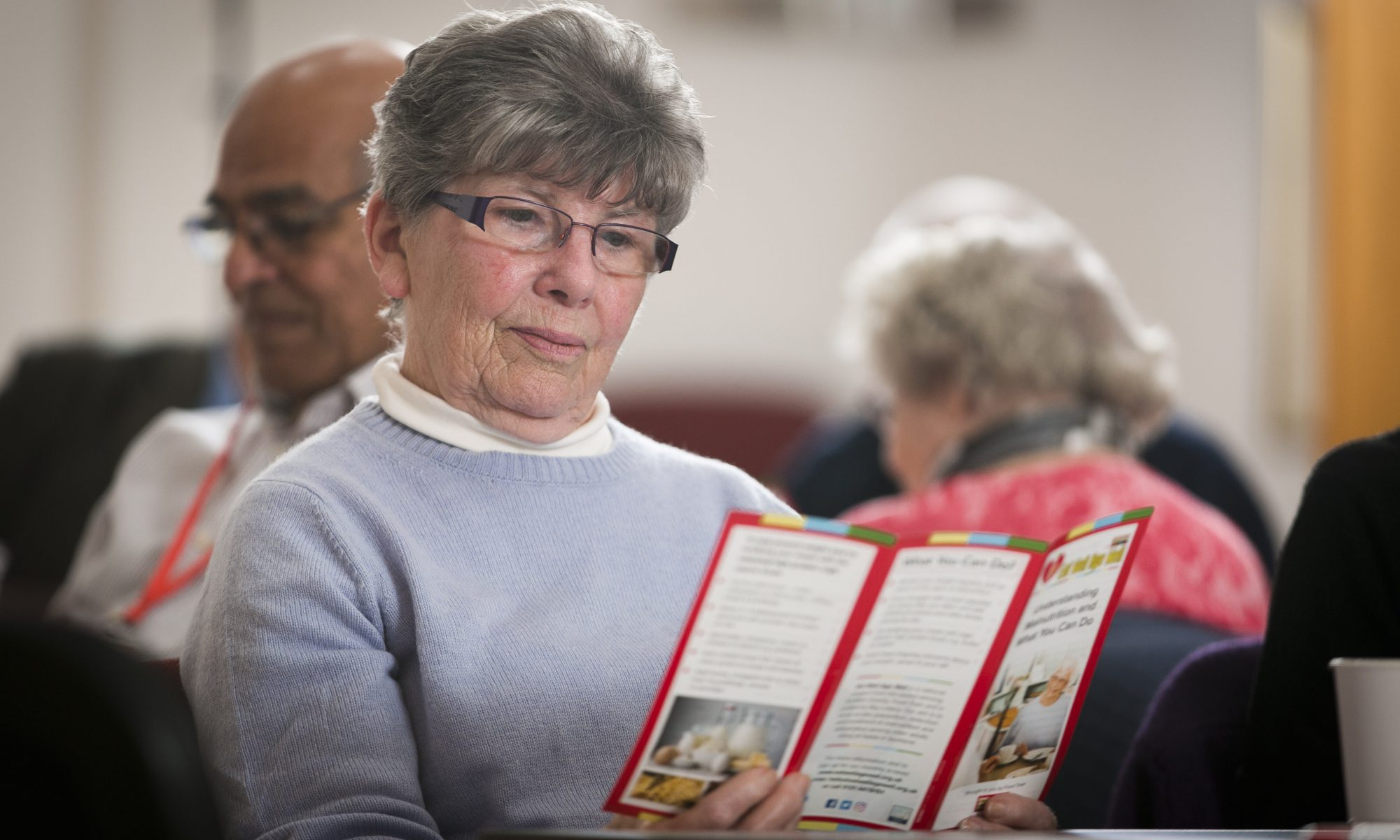Written by Tracy MacInnes, Registered Dietitian and BDA Policy Officer for Scotland

I’m delighted to be supporting UK Malnutrition Awareness Week (5th – 12th Oct 2020) and the work of Eat Well Age Well who are launching their #TimeForChangeScot campaign highlighting their 4 Calls to Action to create meaningful change for older people to eat well, age well & live well in Scotland.
People become malnourished for many varied reasons – it may be because they cannot afford food, can’t properly prepare it due to physical disabilities, have lost their appetite or have another healthcare condition that makes eating and drinking more difficult.
People aged over 65 are more likely than any other age group to suffer from malnutrition. Sadly, a reduced appetite and weight loss have become regarded by some as a normal sign of getting older – but this isn’t true.
Impact of COVID-19
Loneliness is also a significant risk factor for malnutrition. The risk of loneliness has only increased during the COVID-19 pandemic, as many older people have been affected by self-isolation, social distancing, shielding, and visiting restriction rules in our hospitals and care homes. Older people staying at home may also struggle with shopping and cooking but lack support to overcome these problems.

Eating with friends can help reduce the risk of malnutrition for older people, but infection control efforts mean that many older people in care homes or assisted living facilities are having their meals in their own rooms rather than in dining rooms. Many community day centres, places of worship, dementia cafes and lunch clubs are also temporarily closed as result of the lockdown
It can be particularly difficult to eat enough when your food choices are unfamiliar. For many older people, the food in hospitals and care homes is different from what they eat at home. This is often balanced by friends and family members bringing in outside food, but current measures to stop the spread of COVID-19 have restricted this for many families.
Dietitians fighting malnutrition
The consequences of malnutrition can be devastating. It increases the risk of hospital admission, muscle wasting and falls, as well as reducing the body’s ability to fight infection and heal wounds.
Dietitians play an essential role in carrying out comprehensive nutritional assessment including psychosocial considerations to tailor interventions to suit the needs of the individuals. The Patient Association Malnutrition Checklist helps patients and health and social care staff identify the potential risk of malnutrition in older people.
That’s why we at the British Dietetic Association, (BDA), have joined the UK Malnutrition Awareness and Prevention Network (MAPN) to call on government to take action to avoid a “perfect storm for malnutrition”.

The role of dietitians, is now more important than ever, as they have the expertise both at an individual patient and strategic level to identify, assess, care plan, treat, monitor and review individuals to achieve patient-centred outcomes, and train others to prevent and treat malnutrition.
The BDA believes that high quality nutrition and meeting the nutritional, clinical and personal needs of all, must be a priority for all involved in health and social care. The potential for good nutrition to improve the health of the vulnerable population is huge and well documented. Malnutrition should not be, but is, a very real and current problem in the UK population with 1 in 10 older people estimated to be at risk or suffering from malnutrition.
So, it’s time to work together to end malnutrition in the UK.
Tracy MacInnes is Registered Dietitian and BDA Policy Officer for Scotland
Follow on Twitter: @BDA_Dietitians
@BDA_Scotland

